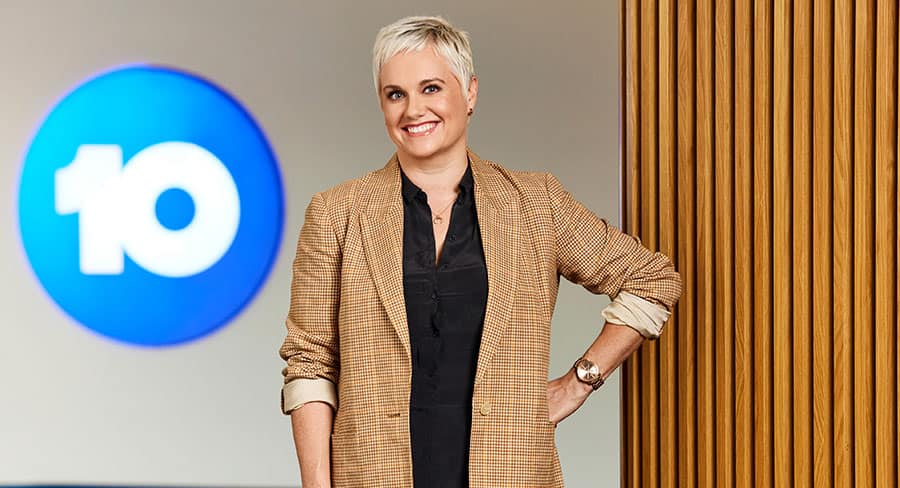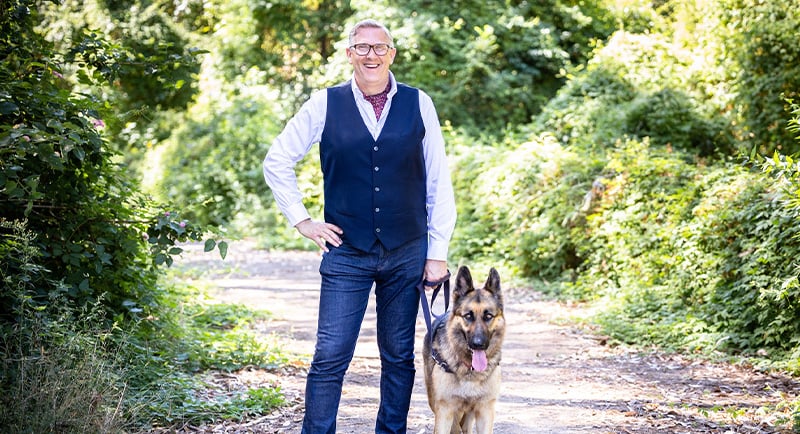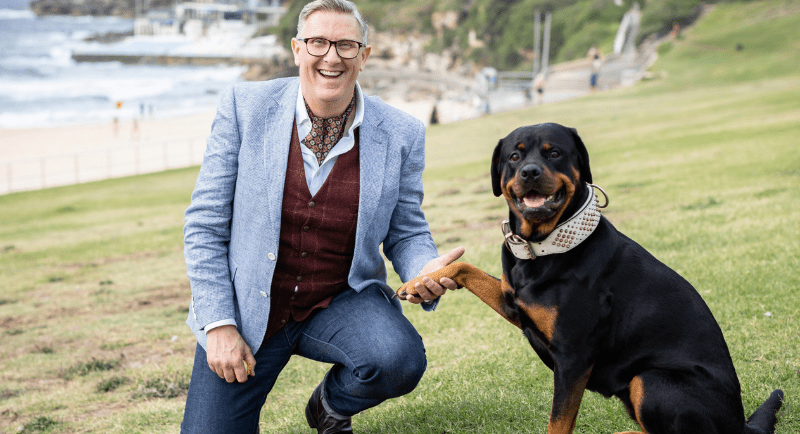“Any Dog, Any Age, Any Problem” – that’s the mantra of Graeme Hall, who is here to help Australia’s chaotic canines. He’s scoured the nation for the most misbehaved hounds and is ready to retrain them when Dogs Behaving (Very) Badly Australia hits screens.
Mediaweek spoke to EP Sarah Thornton about helping furry friends – and their owners – ahead of the show’s premiere on Thursday, 20 July at 7.30pm on 10 and 10 Play.

Sarah Thornton
Bringing the show down under was a decision based on the success of the original format in the UK, and the success of The Dog House down under.
“It’s a really successful format in the UK for our sister channel, Channel Five – I think you could argue it’s one of their best-performing titles,” says Thornton. “In addition to that, The Dog House Australia has been such a significant series – we love it, and it’s really well received by audiences.
“It feels like it’s the other piece of the puzzle of dog ownership. We talked about why it’s so important that dogs aren’t given up, or if they are given up, finding the right home. This is all about the responsibilities once you’re a dog owner at home.”
It’s one thing to find a cast of humans when you’re able to chat with them about their lives and what they can bring to a show. It’s a whole other ball game when you’re trying to put together a cast of pooches, who – as the name of the shos suggests – are not the most cooperative animals on earth.
“It’s actually a relatively complex process,” says Thornton. “We get the initial contact, and then we ask various questions of the families who are applying to take part – but we also require video of the behaviour, which then goes through quite a stringent process, We have the videos go to Graeme [Hall], so he can assess the behavioural issues and make sure that we genuinely believe that it’s something we can help people with, and that it’s a genuine problem, not just someone trying to get on television.
“We also had an animal behaviourist who was part of that process, to assess whether they could be moved into being contenders to be on the show. Then all the usual things applied, like balance of story. But the ability for us to genuinely help was a really big filter.”
The host of Dogs Behaving (Very) Badly is Graeme Hall, who comes across from the original series. He has a proven track record of reforming over 5,000 dogs in the UK in the past decade – no pooch has proven too difficult for the Master Trainer over in Blighty.
When asked whether the team ever considered bringing on an Australian host for the local format, Thornton says that it crossed their minds, but Hall won them over very quickly.

Graeme Hall
“It’s not something we didn’t consider, but I have to say, once I met Graeme and witnessed his abilities – both with humans and dogs – I was genuinely convinced that he was the right man for the job. There’s something about him, he is so extraordinary at putting both people and animals at ease. Every now and then we joke that people are dog whispers or they can speak to animals, but there’s something spooky about his abilities with dogs.
“He genuinely gets the best out of everyone. He’s one of those people that when you meet them, you think ‘you are genuinely extraordinary’, and we’re really privileged to have him a part of this series.”
With Thornton also working on The Dog House Australia, she says that part of the appeal is that shows about pooches “don’t just tell dog stories, they tell human stories.”
“I’ve literally spent the morning watching my daughter play with a puppy, and witnessing the connection of a child and a dog. There’s a reason that they’re humans’ best friends. Humans and dogs have a long history of being companions, and I think that there is something genuinely instinctive in us, that we react in a certain way to dogs.
“I think it’s partly that, and partly that we’re in a moment of time where we were like television that makes us feel good, and TV about dogs is probably going to do that. Even Dogs Behaving (Very) Badly, ultimately, is a really fun, feel-good show. It’s not about horror stories, it’s about naughty, pampered, cheeky dogs that you love, you just wish they’d stop doing one thing.”
Ultimately, Thornton says that she hopes the show gives people a smile, saying that “There’s nothing more I want than to make TV that lifts us up.”
“Through the stories about dogs, we have the opportunity to tell really interesting stories that you wouldn’t necessarily see anywhere else, and get insights into people’s lives that you wouldn’t see very often.
“This is no different to The Dog House in that respect. People get dogs for really significant reasons, like the loss of a partner, illness, or mental health reasons. If we come away learning a little bit more about ourselves as humans, then I think that’s a really great thing too.”
